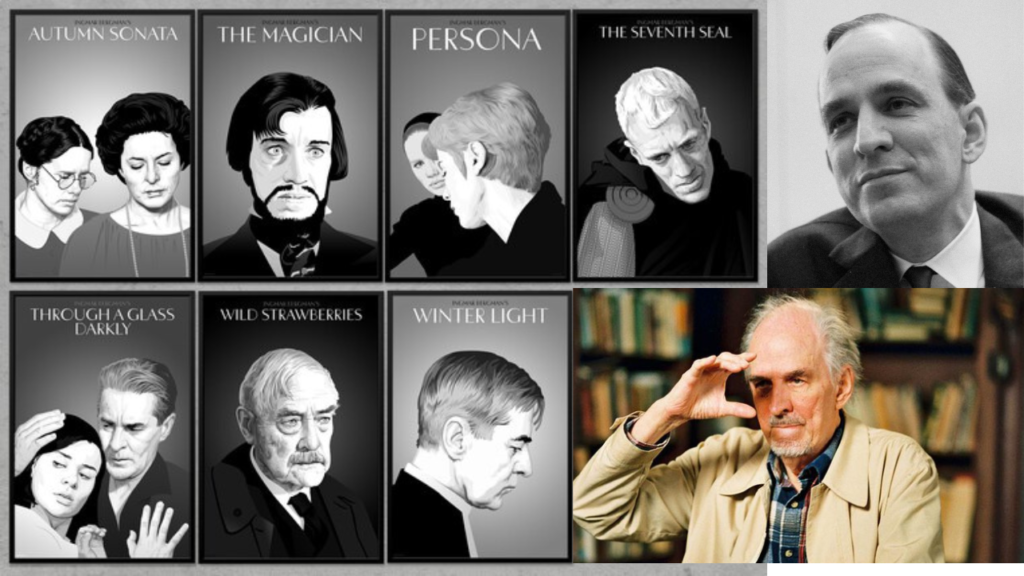Entertainment Desk, BT: In the vast expanse of cinematic history, few names resonate with the same global significance as Ingmar Bergman. Born on July 14, 1918, in Uppsala, Sweden, Bergman embarked on a transformative cinematic journey in the 1940s, leaving an indelible mark on the global landscape of filmmaking. His filmography, a rich tapestry woven with the threads of existentialism, introspection, and a profound examination of the human condition, has not only defined Swedish cinema but has reverberated across borders, captivating audiences worldwide.

Bergman’s early works, such as “Crisis” (1946) and “Port of Call” (1948), laid the foundation for what would become a career marked by an unwavering exploration of internal struggles and the intricate nuances of human relationships. These formative years hinted at the thematic depth that would permeate Bergman’s later masterpieces.
The late 1950s witnessed the emergence of Bergman’s internationally acclaimed masterpieces, beginning with “The Seventh Seal” (1957) and “Wild Strawberries” (1957). “The Seventh Seal” remains a cinematic landmark, an existential odyssey set against the backdrop of a medieval world grappling with the Black Death. Its iconic image of a knight engaged in a game of chess with Death has transcended cultural boundaries, symbolizing Bergman’s ability to seamlessly blend symbolism with a compelling narrative that resonates universally.
“Wild Strawberries” further showcased Bergman’s narrative prowess, offering a poignant meditation on life and mortality. The film follows an elderly professor on a road trip, weaving a tapestry of reflections on life’s choices and the inevitability of our own mortality. Its thematic universality struck a chord with audiences worldwide, establishing Bergman as a director capable of tapping into the shared human experience.

The 1960s marked a prolific period for Bergman, exemplified by his celebrated trilogy – “Through a Glass Darkly” (1961), “Winter Light” (1963), and “The Silence” (1963). This trilogy delved into profound themes of faith, alienation, and the breakdown of communication. “Through a Glass Darkly” earned Bergman the Academy Award for Best Foreign Language Film, catapulting him into the global cinematic spotlight and solidifying his status as an international auteur.
Collaborating with actress Liv Ullmann in the 1960s, Bergman produced films that continue to resonate globally. “Persona” (1966) and “Cries and Whispers” (1972) exemplify the depth and emotional intensity achievable when two cinematic powerhouses join forces. “Persona,” in particular, remains an enigmatic exploration of narrative and identity, pushing the boundaries of conventional storytelling and captivating audiences worldwide with its psychological complexity.
As the 1970s unfolded, Bergman continued his exploration of the human psyche with films like “Scenes from a Marriage” (1973) and “Autumn Sonata” (1978). These works unflinchingly examined interpersonal dynamics and human relationships, resonating with audiences from diverse cultural backgrounds. Bergman’s ability to tap into the universal aspects of human emotion transcended linguistic and cultural barriers, reaffirming the global impact of his cinematic vision.
In his later years, Bergman’s return to more introspective and autobiographical themes was evident in the cinematic epic “Fanny and Alexander” (1982). This sprawling tale, exceeding five hours in its original version, is a sumptuous exploration of childhood, family, and the enchantment of storytelling. The film garnered four Academy Awards, including Best Foreign Language Film, underscoring Bergman’s enduring influence on the global cinematic landscape.
Ingmar Bergman’s filmography is a testament to the international language of cinema. His ability to probe the depths of the human soul, tackle existential questions, and challenge conventional storytelling has bestowed upon cinema a legacy that transcends national borders. Bergman’s films continue to be celebrated and studied worldwide, inviting audiences from diverse cultures to engage in a timeless exploration of the profound enigma of being human. As we revisit his cinematic opus, we are reminded that Bergman’s impact extends far beyond the shores of Sweden, resonating with the collective consciousness of a global audience.





